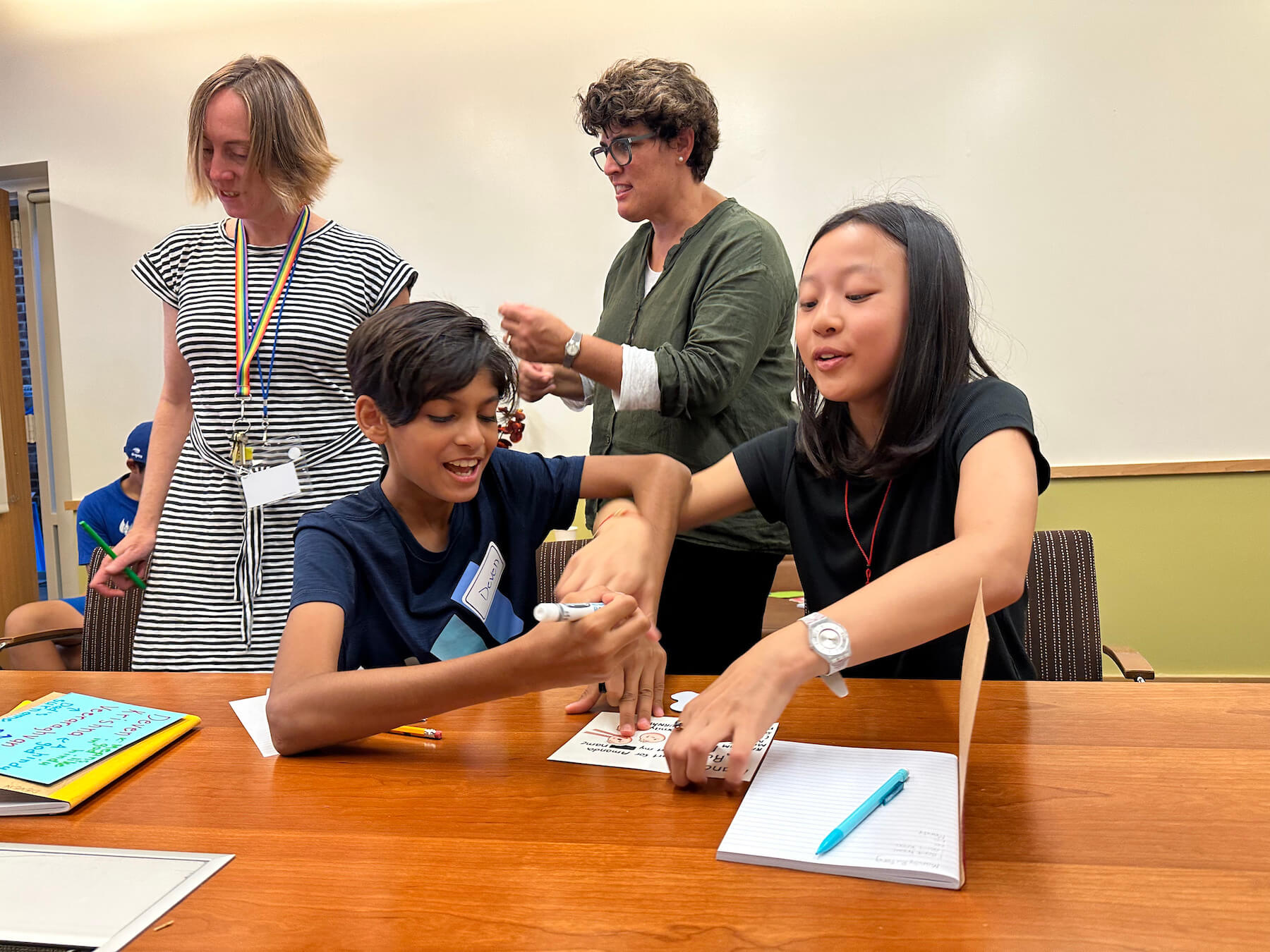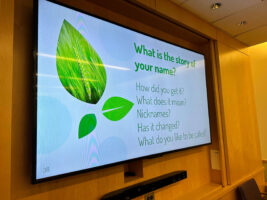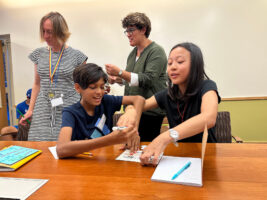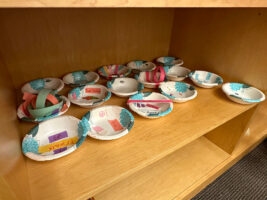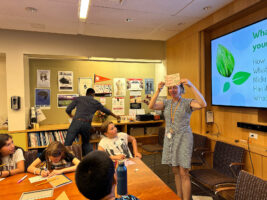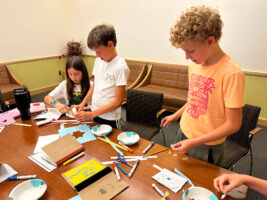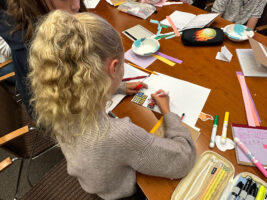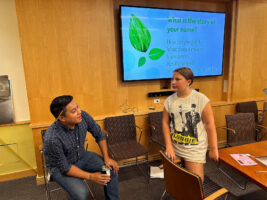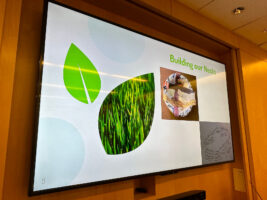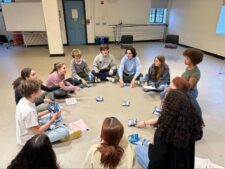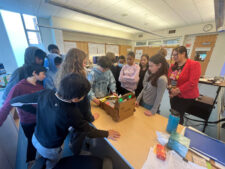For students starting middle school, a new academic year may introduce a mix of new faces and unknown circumstances. To foster a sense of belonging during this transition, 6th and 7th Grade students recently began Community Conversations to build trust and respect with each other.
Acclimating to middle school carries new challenges of changing classrooms frequently and meeting with more peers than in a typical elementary school setting. These social transitions inspired Fieldston Middle faculty and staff to create spaces for their newest students to form connections. Fieldston Middle Diversity, Equity, and Inclusion (DEI) Lead Angelica Pillier and Science Teacher and National SEED Leader Patricia Matos turned to the Seeking Educational Equity and Diversity (SEED) principles to curate a student discussion program emphasizing self-reflection and relationship building.
“After getting trained in SEED, my goal was always to use SEED principles with students,” Pillier says. “I feel that it can add great value to school programming, especially if schools already have an advisory component to their schedule.”
Throughout the academic year, 6th and 7th Graders will continue to participate in several Community Conversation sessions. In paired advisory groups, students follow SEED principles of self reflection to achieve the goals of identity development, building community through shared experiences, and learning to listen to each other and respectfully discuss differences. In early sessions, faculty facilitators taught students about establishing conversation norms, letting others speak uninterrupted, and sharing personal stories. Students then shared stories about their names, including where they came from, what nicknames they might have, and how their names might have changed.

“This format of discussion gives participants an entry point that they know well, which is their own individual stories,” says Fieldston Middle Principal Jon Alschuler. “These conversations foster empathy, active listening skills, strong communication norms, and the ability to be in dialogue around sensitive topics. They will help students to know each other more deeply, to appreciate their similarities and differences better, and to be in respectful dialogue with one another for years to come.”
Students also explored the concept of “windows and mirrors,” asking them to look for a story’s “mirrors” (details that reflect one’s experiences) and “windows” (details that provide insight into unfamiliarity). In one 6th Grade advisory group, students partnered with someone outside their typical circles for discussion. One faculty facilitator reminded them, “You’re free to expand upon your reasons!”
Participants considered whether windows or mirrors were easier to identify and what it was like sharing with someone they didn’t know well. The 6th and 7th Graders were honest about the exercise’s initial awkwardness, reflecting how they have contributed to more discussion as they expand their comfort zones.
“We didn’t realize how much students wanted to talk about certain topics,” Pillier explains. “Our students have much to say, and sometimes, as adults, we miscalculate which things they want to discuss more. So we’ve had to pivot some of the lessons to give more time for students to talk about what they have on their minds.”
Another exercise asked students to consider what gives them a sense of belonging and joy. Students then decorated paper slips, or “twigs,” to symbolize these affirmations, such as food, holidays, and their families, and glued them into paper bowls, or their “nests.” The nest activity highlighted the importance of students having an affirmed space to protect themselves from negative messages they may receive from the world.

Community Conversations will continue in October, introducing more topics to help students adapt to their new Middle School community.
“We hope students take these reflections into other classes and use tools like windows/mirrors and nests and self care in them,” Pillier says. “This will help foster sympathy and empathy for one another, help them ask more in-depth questions in class, and make them think about their intent versus their impact as a human being.”
